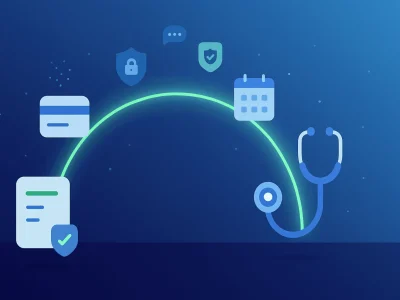Attorney-client privilege is a fundamental legal principle that protects the confidentiality of communications between attorneys and their clients. This privileges clients to disclose sensitive information without fear of being revealed to third parties representation and breaching this privilege has consequences, including legal sanctions and loss of credibility to professional reputations.
Secure online notes are digital messages or notes that are encrypted and designed to self-destruct after a predetermined period. These notes provide a safe and temporary platform for sharing sensitive information, ensuring it remains accessible only to authorized individuals for a limited time.
Online notes uphold attorney-client privilege
Confidential communication channel
One of the primary benefits of secure online notes is their ability to maintain confidentiality in attorney-client communications. Using robust encryption methods, these notes ensure that sensitive information remains inaccessible to unauthorized parties, reducing the risk of privilege breaches or unauthorized disclosure.
Limited access and controlled sharing
Secure online notes allow attorneys to control who has access to privileged information and for how long. They can share sensitive details with specific clients or colleagues and set a time limit for the note’s availability. The note self-destructs once the time limit expires, leaving no trace behind.
Data breaches are a significant concern in the legal profession, as they can expose privileged attorney-client communications to unauthorized parties. Secure online notes minimize the risk of data breaches by limiting the window of opportunity for unauthorized access. Since the notes self-destruct after a predetermined time, the potential for data theft or exposure is significantly reduced.
Compliance and ethical obligations
Strict ethical obligations and rules of professional conduct regarding client confidentiality and privilege govern the legal profession. By using secure online notes, attorneys can demonstrate their commitment to upholding these obligations and comply with relevant regulations and guidelines, reducing the risk of disciplinary actions or legal liabilities Write your notes online.
Implementing secure online notes for attorney-client privilege
Identifying privileged information
The first step in implementing secure online notes is identifying the types of privileged information requiring additional security measures. This may include client communications, case details, legal strategies, or any other sensitive information that falls under the scope of attorney-client privilege.
Choosing a reliable secure notes platform
Select a secure online notes platform that prioritizes security, privacy, and compliance with legal regulations. Look for providers with robust encryption, access controls, and reliable self-destruct mechanisms. Ensure that the platform meets the specific requirements of the legal profession.
Establishing access controls and time limits
Once you have chosen a secure platform, establish access controls and time limits for privileged information. Determine who needs access to the information and for how long. Set appropriate time limits for the notes to self-destruct, ensuring the data is only available for the intended duration and purpose.
Educate attorneys, legal staff, and clients on the importance of attorney-client privilege and the proper use of secure online notes. Provide training on best practices for handling privileged information and the potential consequences of unauthorized disclosure or misuse.
To maximize the effectiveness of secure online notes, integrate them into existing workflows and communication processes within your legal practice. Encourage using these notes to share privileged information during client consultations, case discussions, or collaborative legal efforts.








Comments